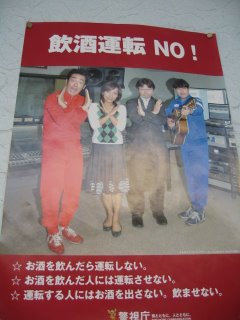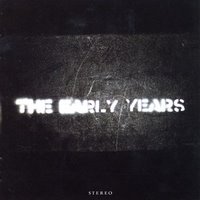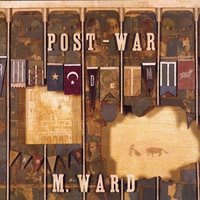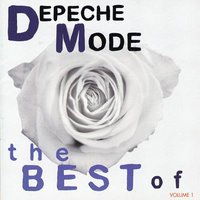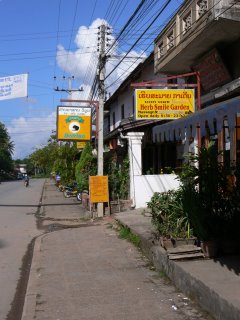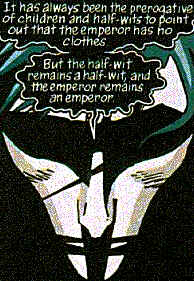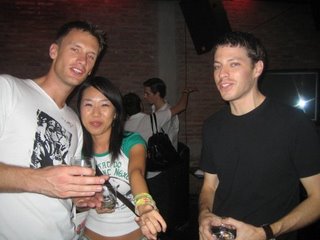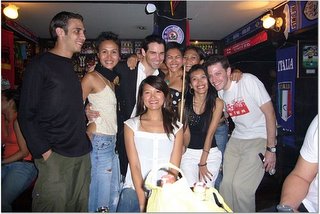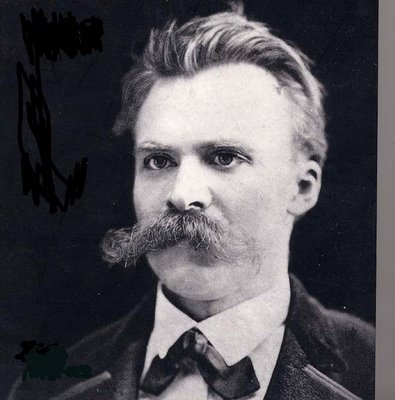Karl Bartos, former member of the legendary electronic group, Kraftwerk, just came to Bangkok. I interviewed him. Check it out! -->
The fate of classically trained percussionist and keyboard player, Karl Bartos changed radically in 1975 when he was hired to fill in the line up for the first American tour of electro godfathers, Kraftwerk supporting the release of their
Autobahn album. After the tour completed, he was taken on by the group as an official member, and took part in producing some of their most seminal releases, including
Trans-Europe Express, The Man-Machine, and
Computer World. He left the group in 1991 to embark on a solo career, and has since been involved in a number of projects, including collaboration with Bernard Sumner and Johnny Marr on Electronic’s 1996 album,
Raise the Pressure and OMD’s
Universal album. Since 1999, he has been DJing internationally in addition to teaching courses on sound and acoustic arts at the Berlin University of Arts.

Relaxing before a distinctly Kraftwerkian DJ set at Bed Supperclub in Bangkok, Karl sips on a Perrier and talks to the long line of journalists who eagerly ask him questions about his numerous past and present projects. He has a down-to-earth, unpretentious air about him that one wouldn’t expect to encounter from an artist as accomplished as he. He oozes calm composure, and talking to him is almost like having a conversation with an old friend of the family.
The club is almost unrecognizable from the night before when it heaved to the sounds of Felix da Housecat; however a small, dedicated crew of followers in dark clothing and plastic framed glasses line the starched white beds in uneasy positions.
Starting the interview, Karl innocently asks, “so, what do you want to know?”
You are a Professor of Sound at the Berlin University of Arts. What kind of curriculum do you teach at these classes?
We have found that sound plays a crucial role in our lives. The course is called Sound Studies, and focuses on the ecology of sound; sound in artificial places, how sound reacts in a room, in installations, etc. My part of the course focuses on audio media design. I’m observing pop music as well as classical music, but we’re also building an electronic studio. I work with my students in doing soundtracks; we recording sound in the streets, we’re making “sound walks”. So it’s all about sound, and music is just one little tiny bit of it. It’s about soundscapes—how sound is perceived by human beings. What does it mean to have a sound biography? How does sound position picture? If you listen to different music accompanied by the same picture, how does the meaning or understanding of the images change? That’s what it’s all about.
What other projects are you working on now besides teaching?
I’ve got a record label. We produce music and video at the same time. Doing that in addition to teaching and playing live keeps me busy.
Looking at how music technology has developed, do you lament the digital cross over? For example, people used to use analog equipment—analogue synthesizers, drum machines, records—and now they use digital equipment—CDs, laptops, etc. Is there a difference, in your mind?It doesn’t matter. I’ll give you an example. I’m not sure how old you are, but I’m sure you grew up with an old style telephone—a telephone on the wall. If you consider the messages you send over that old phone on the wall versus the messages you are now sending over your mobile phone, did the messages change? You see? It really doesn’t matter at all. But somehow, eventually, the content of the information will be influenced by the medium you send it over. But it’s not that quick. You know Gutenberg?
No. 
Gutenberg is the guy who invented the printing press for printing books. The printing press is movable type. Before Gutenberg, you could only write a book by handwriting. When he came up with the printing press, movable type, it suddenly influenced the way people were thinking, because it opened up a new view of the world for everybody—not just the people in the churches or the elite, but for everybody. The Bible could be printed in millions of copies and could be sent all over the world. This changed the way our society was thinking and acting. Cut. Then we had… oh, it’s a big cut, too much to explain… Then we had, suddenly, a television set in the middle of our living rooms. This was part of the very late electrical revolution. And the television set, the contents of the media, image and sound, changed another time the way our culture, in a holistic view, thinks. Does this answer your question?
Yeah, I think so. In other words, you embrace the digital revolution.It doesn’t mean so much because the messages haven’t changed. You haven’t changed, the message hasn’t changed, but probably in many generations, the technology will begin to change the way we are thinking.
In terms specifically of performing music on stage, a lot of bands that have electronic elements will use laptops instead of analogue equipment of some sort. While using pre-sequenced beats and such may make for a cleaner, tighter sound, it doesn’t necessarily make for a more entertaining show. Do you think there is a happy medium—a way to entertain an audience while having a really tight, clean sound?Well, that’s the funny thing with music. If you compare the making of music to the making of a piece of art, nobody expects from an artist, like a painter, to come on stage, starts his painting from scratch, and finish it there. You expect a painting to be started and finished in a studio, and then displayed in a museum or wherever. Whereas a musician always has to be part of a performance. The so-called laptop artists have changed it a bit, but from my point of view, it’s kind of boring to have a laptop up there and to just press play. I’m here to play a DJ set, which is maybe something in the middle. I’m spinning records, some of which I’ve produced, some I have not. But bringing over my whole live set is impossible—it’s too expensive. So it’s a compromise.
Do you find it difficult to escape the shadow of Kraftwerk now?No.
The music you are creating now, do you think people look at it differently or the same as the Kraftwerk material?
You are always connected to the past. It’s part of our lives until we die. What can we do? We have to adjust to reality as best we can. It is what it is, and that’s the way it is. If I don’t adjust, I will have a hard time, so I get along with it.
In those early days with Kraftwerk, did you realize that the music you were making was going to change the way that electronic music evolved?It had already changed before us. The things that we did were based on the work of people like Pierre Shaeffer, Pierre Henry, a lot of classical composers who made tape music. John Cage, who came up with the idea that he didn’t need interpreters for his music and just composed onto tape. Then he came up with pieces like “4:33”—which is just silence! So he opened up the doors for many thoughts, and once you found those doors open, you went through. We didn’t change music that much, we just took some ingredients and brought them into the field of pop music. We brought some things together which were apart before. But apparently we somehow knew that the industrialization of music was taking place. We were waiting on the day when the black guys discovered the groove of a rhythm machine—that the machinery had a groove of its own which has a human feeling, but is really funky. The rhythm machine is interesting because time is only moving forward and as you are listening, you are perceiving the time floating by… this will change your perception, you know what I mean?
Yeah, I think so. So when you guys were on tour, did Kraftwerk have crazy parties with like, groupies and stuff?
Can you keep a secret?
Well… I’m a journalist.
I can. I can keep a secret.
OK… so, are there any new artists you think are bringing electronic music into the future, or artists you would like to work with?You know the funny thing about the future is that it happens to you while you are busy doing other things. So you never know when the future actually starts. It doesn’t come from a distance; it’s already here. I think the future of music is intertwined with the future of media. Like what has happens with the fragmentation of television programs—250 channels, but there’s nothing to watch. It’s much nicer to sit in the sun and have a cappuccino with your girlfriend.
 The funny thing that happened that didn't get mentioned in that story though is that this dude Piya, who I met on the side of the road, ended up being a complete nutter. He was a boat driver and on the day I met him, it was Nam Boon Bong Fai, or the Laos Festival of Light. During this fest, which is a lot like the Thai Loy Kratong, they have long tail boat races during the day and fireworks and stuff at night. He offered to take me to hang out with some friends and watch the races. He seemed cool, so I went.
The funny thing that happened that didn't get mentioned in that story though is that this dude Piya, who I met on the side of the road, ended up being a complete nutter. He was a boat driver and on the day I met him, it was Nam Boon Bong Fai, or the Laos Festival of Light. During this fest, which is a lot like the Thai Loy Kratong, they have long tail boat races during the day and fireworks and stuff at night. He offered to take me to hang out with some friends and watch the races. He seemed cool, so I went. Once you got away from the river and got into the jungle, it was seriously like a hill tribe rave. There were HUGE soundsystems everywhere jamming some music that sounded like Thai luk thung, but my new friend Piya assured me it was not--this was the music of the Laos hilltribe called the Kaa Muu (i'm probably spelling that wrong). Anyway, it was loud, sounded vauguely like reggae with accordions and wind pipes and stuff, and they had 2 MCs shouting out and singing.
Once you got away from the river and got into the jungle, it was seriously like a hill tribe rave. There were HUGE soundsystems everywhere jamming some music that sounded like Thai luk thung, but my new friend Piya assured me it was not--this was the music of the Laos hilltribe called the Kaa Muu (i'm probably spelling that wrong). Anyway, it was loud, sounded vauguely like reggae with accordions and wind pipes and stuff, and they had 2 MCs shouting out and singing.




